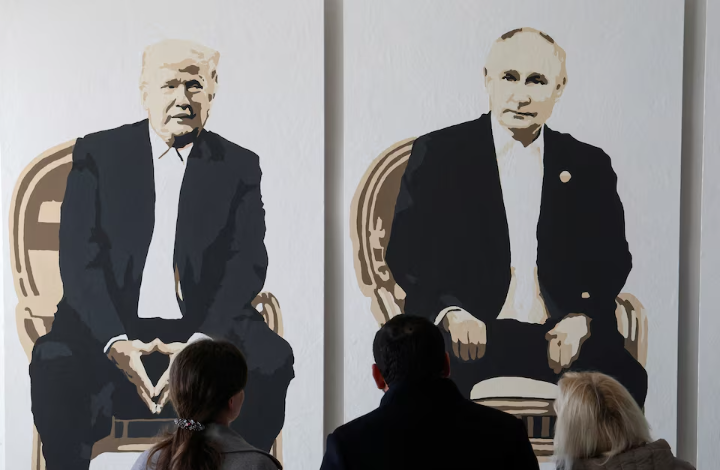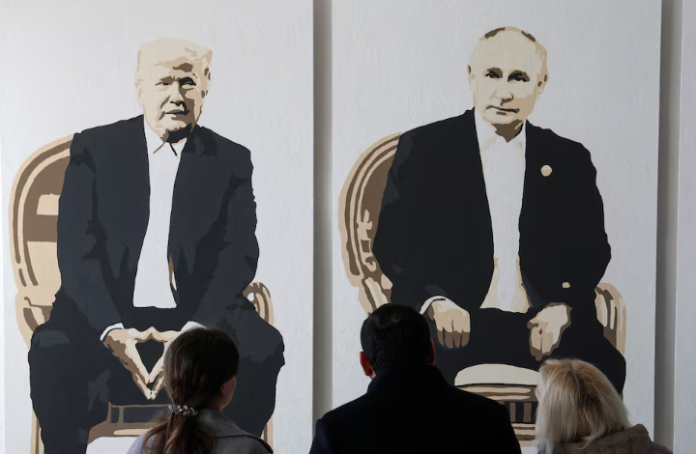In a move that stunned Ukraine and its allies, U.S. President Donald Trump held a two-hour call with Russian President Vladimir Putin—abandoning his earlier demand for an unconditional 30-day ceasefire in Ukraine. The call, which many hoped would pressure Russia into pursuing peace, instead left Kyiv reeling and Europe scrambling to reassess its strategy.
Until recently, Trump had supported an aggressive approach toward Moscow—proposing a ceasefire plan backed by the threat of tighter sanctions. Ukraine was fully onboard. Russia, unsurprisingly, wasn’t. But Monday night’s conversation marked a significant shift: Trump appeared to pull back from that strategy, signaling the war may no longer be his problem to fix.
The decision is a bitter disappointment for Ukraine, which has been trying to get Trump onside ever since his public spat with President Volodymyr Zelenskiy earlier this year. European leaders, already wary of Putin’s tactics, are alarmed by Trump’s abrupt pivot.
Before the call, Trump had hinted at taking a harder line against Russia if there were no signs of peace. But during his talk with Putin, those threats were replaced by talk of economic partnership—dangling incentives rather than wielding consequences.
“It’s impossible to trust him for more than a day,” one European diplomat admitted. “He doesn’t seem interested in Ukraine at all.”
Trump later told European leaders, including Zelenskiy, that negotiations between Ukraine and Russia would begin immediately, adding he believed “some progress” was being made. But sources familiar with that conversation said Europe’s reaction was one of “shock.”
Despite the setback, Ukraine and its allies have responded with fresh sanctions against Moscow, maintaining pressure in other ways while hoping Trump changes course—again.
Meanwhile, Russia appears to be in no hurry. According to German Defence Minister Boris Pistorius, “Putin is clearly playing for time. He’s not interested in peace.” Analysts agree, saying Russia is using slow diplomacy to strengthen its battlefield position while Europe struggles to coordinate a united response.
Putin, after the Trump call, claimed that Moscow was open to working on a memorandum for a peace agreement. But there is widespread skepticism. Since Russia’s full-scale invasion in February 2022, U.S. support—military aid, intelligence, and weapons—has been essential to Ukraine’s defense. With Biden’s aid package due to expire this summer, Ukraine is anxiously awaiting clarity on where Trump stands.

Although European nations have promised to continue military and financial support, they cannot match U.S. capabilities. Certain high-tech U.S. munitions are irreplaceable—especially air defense systems and precision missiles.
Trump’s unpredictable stance threatens not only Ukraine’s battlefield advantage but also the diplomatic leverage the West has worked hard to maintain. Just last month, Ukraine and the U.S. signed a minerals deal—a hopeful sign, along with direct Ukraine-Russia negotiations in Istanbul, that momentum might be building. Now, those hopes have been dashed.
“It’s one step forward, two—or even ten—steps back,” a European diplomat remarked. “We’ll keep pressing Trump to hold Russia accountable. But it’s harder than ever to know what to expect.”



